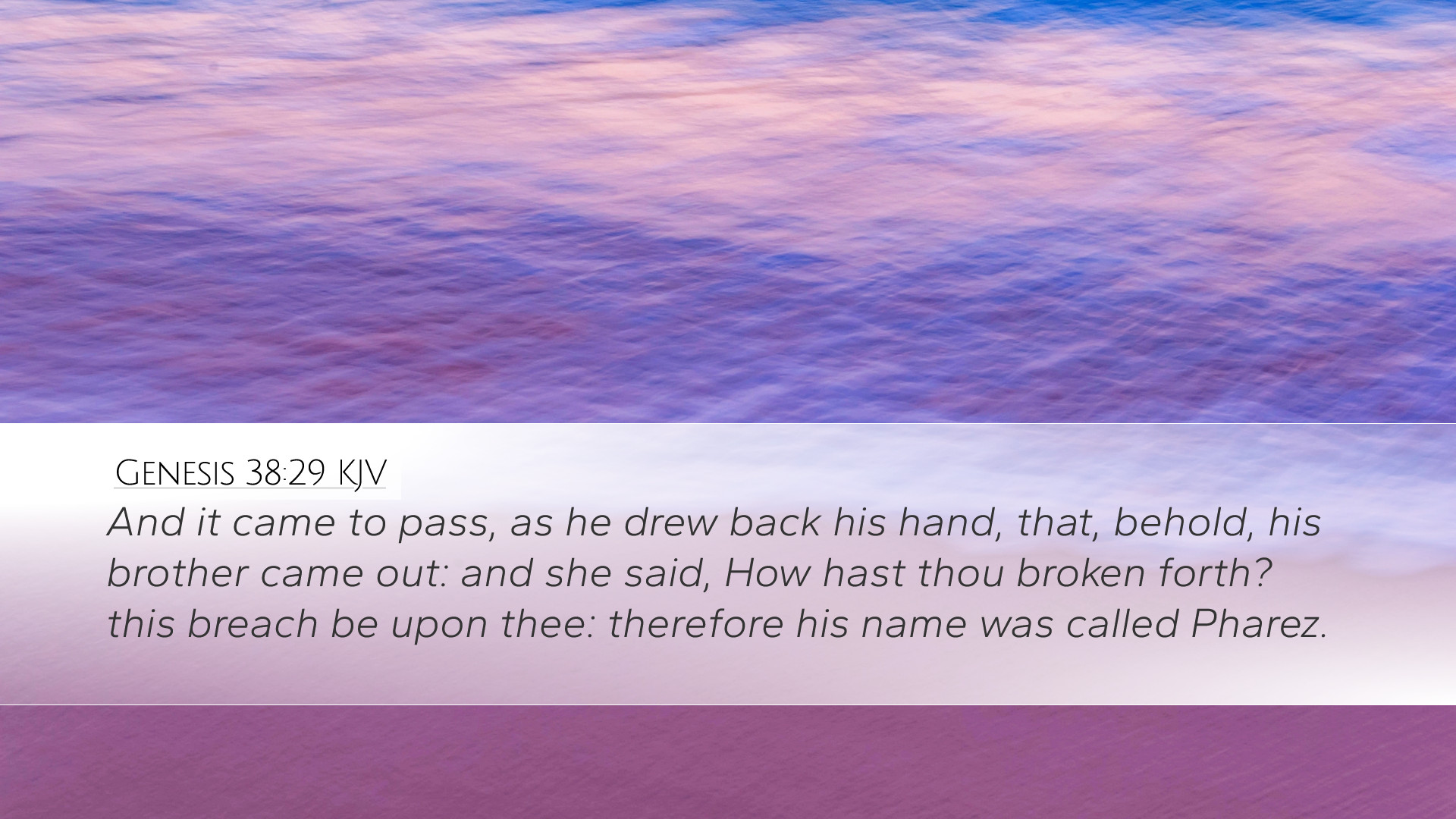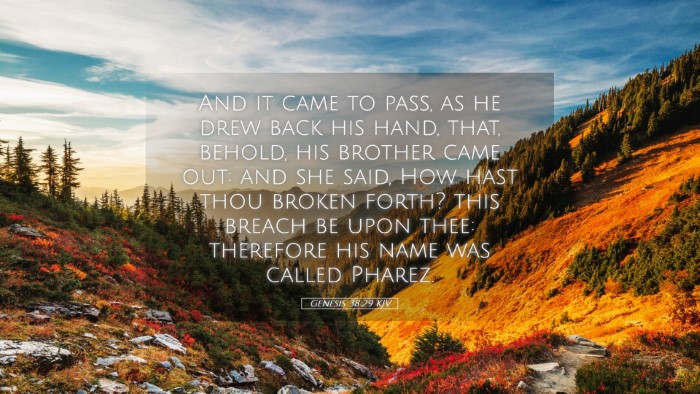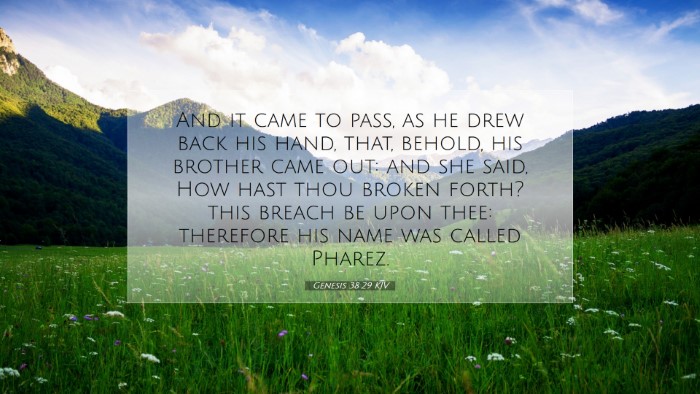Commentary on Genesis 38:29
Introduction: Genesis 38:29 describes a significant moment in the narrative of Judah and Tamar, wherein a curious incident occurs during the birth of Perez and Zerah. This verse is exemplary of the complexities of human relationships, divine providence, and the unfolding of God's plan through unexpected circumstances. The commentaries of Matthew Henry, Albert Barnes, and Adam Clarke provide deep insights into the implications and theological meanings of this verse.
Exegesis of Genesis 38:29
Genesis 38:29 states, "But as he drew back his hand, behold, his brother came out; and she said, How hast thou broken forth? this breach be upon thee: therefore his name was called Pharez." The verse captures a pivotal moment where Perez (Pharez) emerges first, followed by his twin brother Zerah, who, in an unexpected turn, causes a disruption by breaking forth before Perez.
The Symbolism of Birth Order
1. Reversal of Expectations: In ancient Near Eastern culture, the firstborn son held a special position of privilege and inheritance. Yet, the manner of their birth subverts these norms and expectations.
- Matthew Henry notes that the human propensity to delineate status by birth is questioned by this account. He reflects on how God’s plans unfold in ways counter to human ideals, emphasizing God's sovereignty in choosing who would carry forward the covenant promise.
- Albert Barnes elaborates on the meaning of Perez's name, which translates to "breach" or "breaking forth." He links this to the unforeseen events that lead to significant developments in Israel's history and how God's purpose may emerge through chaotic or unexpected circumstances.
Divine Providence and Human Agency
2. The Role of Judah and Tamar: The actions of Judah and Tamar are presented in a complex light as they navigate societal expectations and personal desires.
- Adam Clarke emphasizes Tamar's pivotal role; her determination to secure her legacy and fulfill her duty as a widow reflects the intricate weave of human agency within divine providence. Her actions lead to the fulfilling of the ancestry of David, and ultimately, Jesus.
- Matthew Henry stresses the importance of reconciliation and redemption in Judah’s life, indicating that despite Judah’s earlier failures, this incident catalyzes his transformation and familial responsibilities.
Typological Interpretations
3. A Foreshadowing of Redemption: The narrative serves as a type of Christ, showcasing themes of sacrifice, restoration, and hope.
- Albert Barnes draws parallels between Perez and Christ, suggesting that just as Perez overcame the birth order expectations, so too does Jesus break through societal norms and barriers to bring salvation.
- Adam Clarke posits that the story of Perez and Zerah serves as a microcosm of the larger redemptive narrative of the Scriptures, where the least expected are chosen for divine purposes.
Practical Applications
4. Reflection for Believers: This narrative invites believers to consider the ways in which God acts beyond human comprehension and societal norms.
- Understanding Redemption: Just as Perez emerged despite the odds, Christians are reminded that God's grace often appears in the unlikeliest of situations, offering hope and renewal.
- Embracing Complexity in Relationships: The story of Judah and Tamar highlights the importance of navigating personal and familial struggles with honesty and integrity, encouraging believers to seek restoration in their relationships.
Conclusion
Genesis 38:29 encapsulates profound theological truths amid a narrative rich with characters grappling with moral complexities. The integration of insights from Matthew Henry, Albert Barnes, and Adam Clarke invites pastors, students, and theologians to delve into the multifaceted nature of God's providence, the reversal of human expectations, and the embodiment of grace found throughout the Scriptures. This account urges believers to trust in God's divine plan amid life's unpredictability, assuring them that He works all things for good in the grand narrative of redemption.


